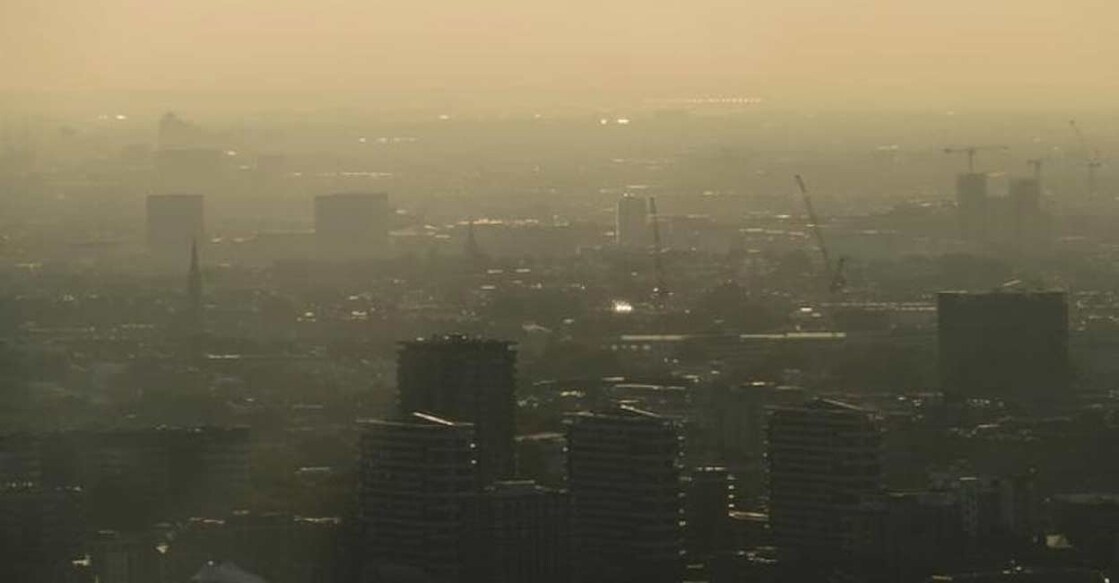Air pollution reducing life expectancy by 5 yrs in India: Study

Mail This Article
New Delhi: Air pollution is the greatest threat to human health in India and the average Indian resident is set to lose five years of life expectancy if the WHO guidelines are not followed, according to the Energy Policy Institute at the University of Chicago's (EPIC) Air Quality Life Index (AQLI) released on Tuesday.
The residents of Delhi, the most polluted mega city in the world with the average annual PM2.5 levels exceeding 107 micrograms per cubic metre or more than 21 times the WHO guidelines, stand to lose 10 years of life expectancy if the current air pollution level persists, the report said.
According to the new World Health Organization (WHO) guidelines issued last year, the average annual PM2.5 concentration should be no higher than five micrograms per cubic metre. It was 10 micrograms per cubic metre earlier.
Measured in terms of life expectancy, the AQLI shows that ambient particulate pollution is consistently the world's greatest risk to human health.
Globally, air pollution reduces 2.2 years of life expectancy, relative to a world that follows the WHO guidelines. This impact on life expectancy is comparable to that of smoking, more than three times that of alcohol use and unsafe water, six times that of HIV/AIDS and 89 times that of conflict and terrorism.
"Of all the countries in the world, India faces the highest health burden of air pollution due to its high particulate pollution concentrations and large population," the report said.
"Since 2013, about 44 per cent of the world's increase in pollution has come from India, where the particulate pollution level has increased from 53 micrograms per cubic metre to 56 micrograms per cubic metre – roughly 11 times higher than the WHO guidelines," it said.
The average annual particulate pollution in India has increased by 61.4 per cent since 1998, leading to a further reduction in the average life expectancy of 2.1 years.
The study attributed the rise in air pollution in India to the industrialisation, economic development and population growth over the last two decades, which have led to a skyrocketing energy demand and fossil fuel use.
All of India's 130 crore people live in areas where the annual average particulate pollution level exceeds the WHO guidelines. More than 63 per cent of the population live in areas that exceed the country's own national air quality standard of 40 micrograms per cubic metre, it said.
The Indo-Gangetic plains, home to more than 50 crore people or about 40 per cent of the country's population, is the most polluted region in India, with an annual average PM2.5 concentration of 76.2 micrograms per cubic metre in 2020.
The study said "510 million residents of Indo-Gangetic plains are on track to lose 7.6 years of life expectancy on average if current pollution levels persist. Residents of Lucknow stand to lose 9.5 years of life expectancy".
It said if the WHO norms for PM2.5 pollution are met, life expectancy can go up by 8.2 years in Uttar Pradesh, 7.9 years in Bihar, 5.9 years in West Bengal and 4.8 years in Rajasthan.
Across the world, 7.4 billion (740 crore) people -- 97.3 per cent of the global population – live in areas where the PM2.5 level exceeds the WHO's new, stronger guidelines.
South Asia stands to lose the most in terms of life expectancy. India, Pakistan, Bangladesh and Nepal – where nearly a quarter of the global population lives – remain among the top five most-polluted countries in the world.
South Asia accounts for more than half (52 per cent) of the expected lost life years globally due to high pollution.
"Average life expectancy across these four countries would be five years higher if pollution concentrations permanently complied with the WHO guidelines," the analysis said.
The researchers said more and more people are now recognising the severity of the air pollution problem and governments are beginning to respond.
In 2019, the Indian government declared a "war on pollution" and launched its National Clean Air Programme (NCAP) with the goal of reducing the 2017 particulate pollution levels by 20 to 30 per cent by 2024.
Since then, India has adopted fuel emissions standards that are on par with the European Union EU) standards. Although the NCAP targets are non-binding, achieving and sustaining such a reduction would increase the country's national life expectancy by 1.6 years and by as much as 3.2 years for the residents of Delhi, the researchers said.

